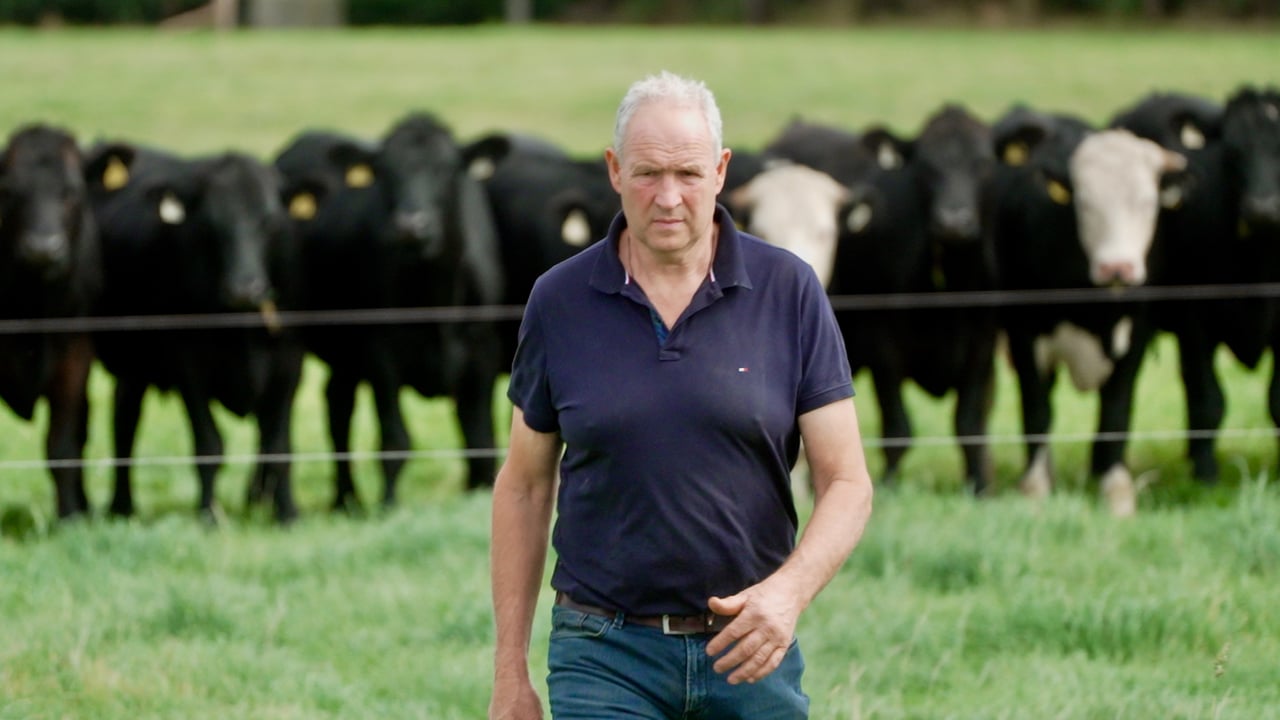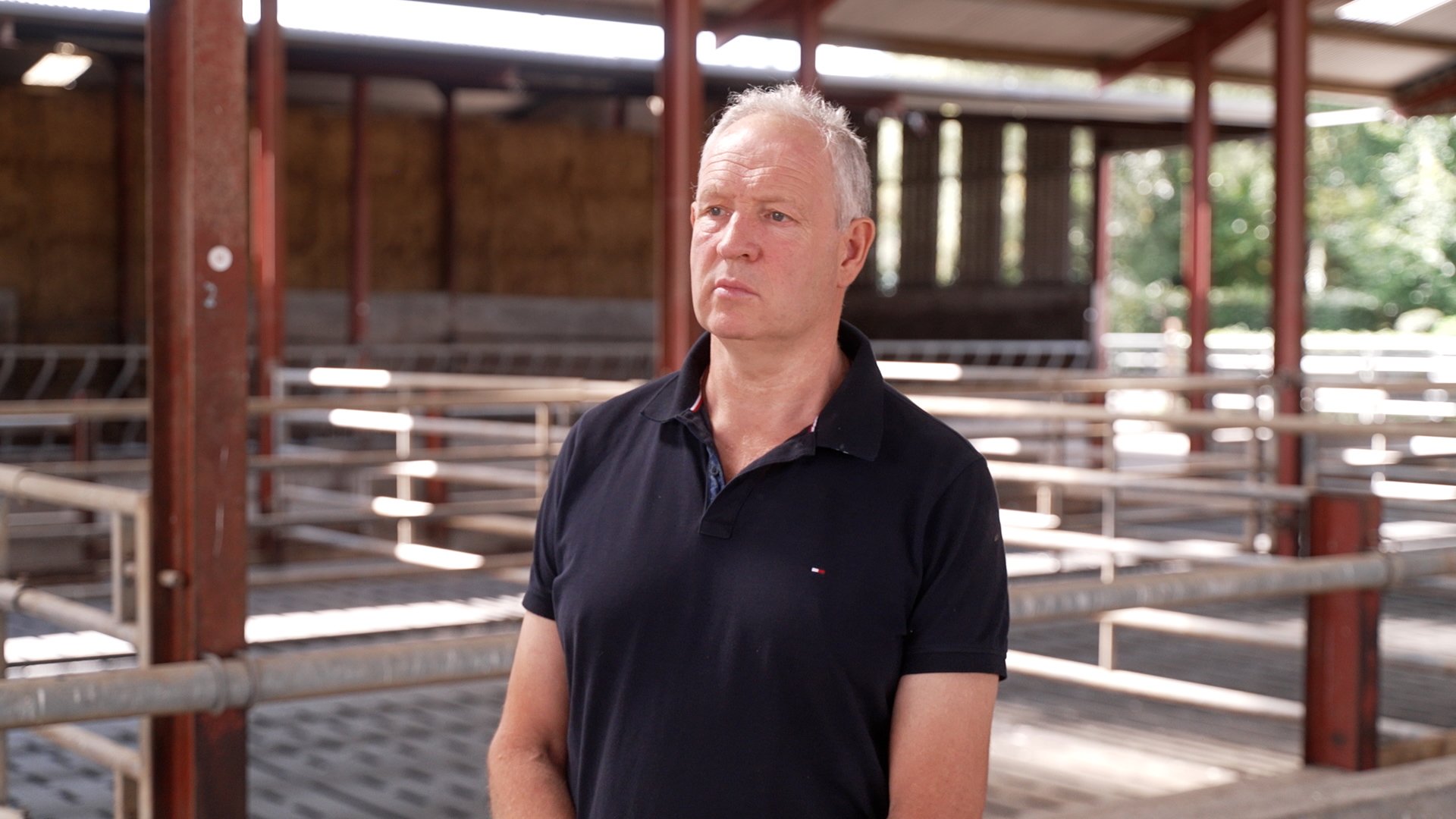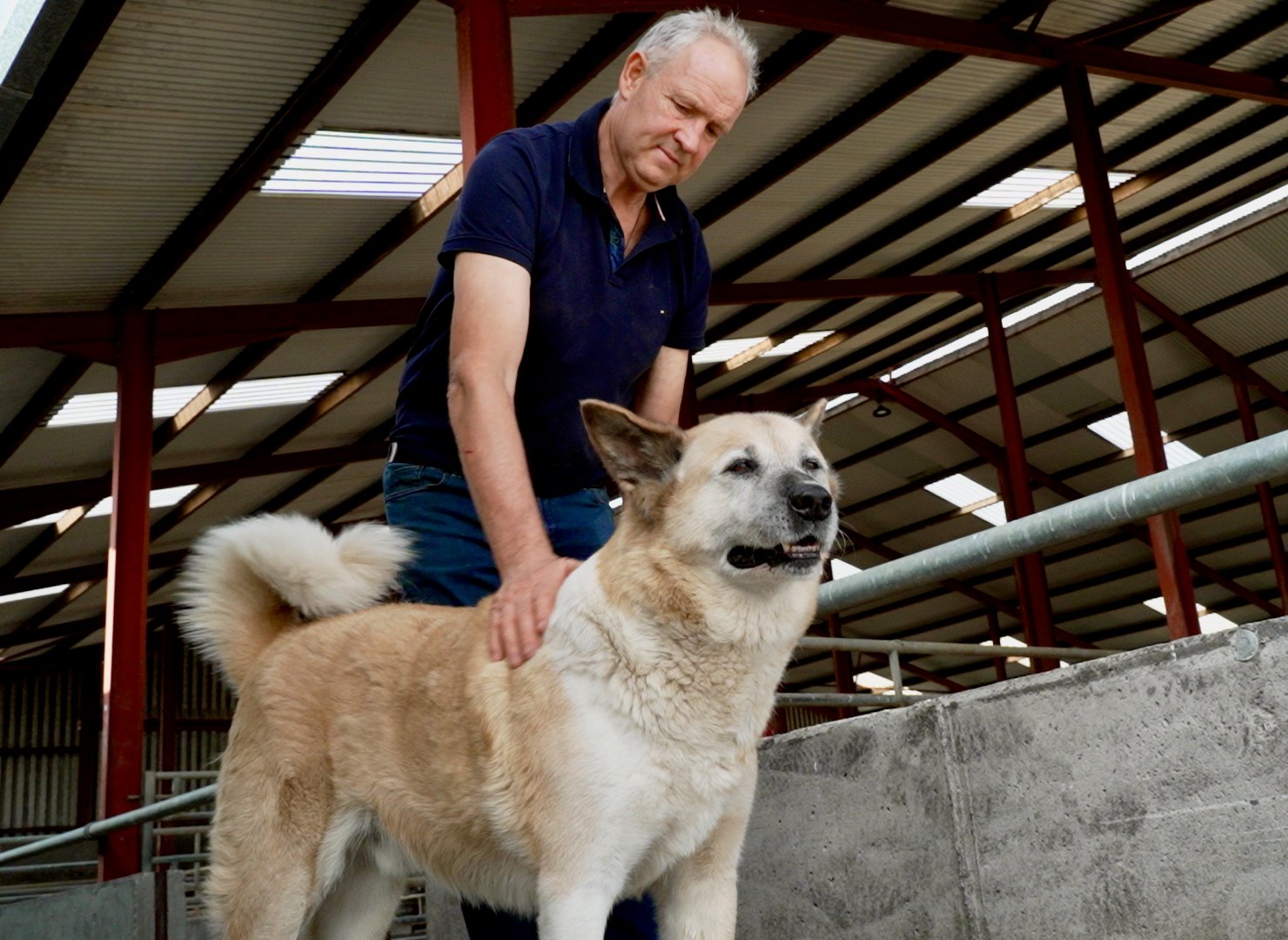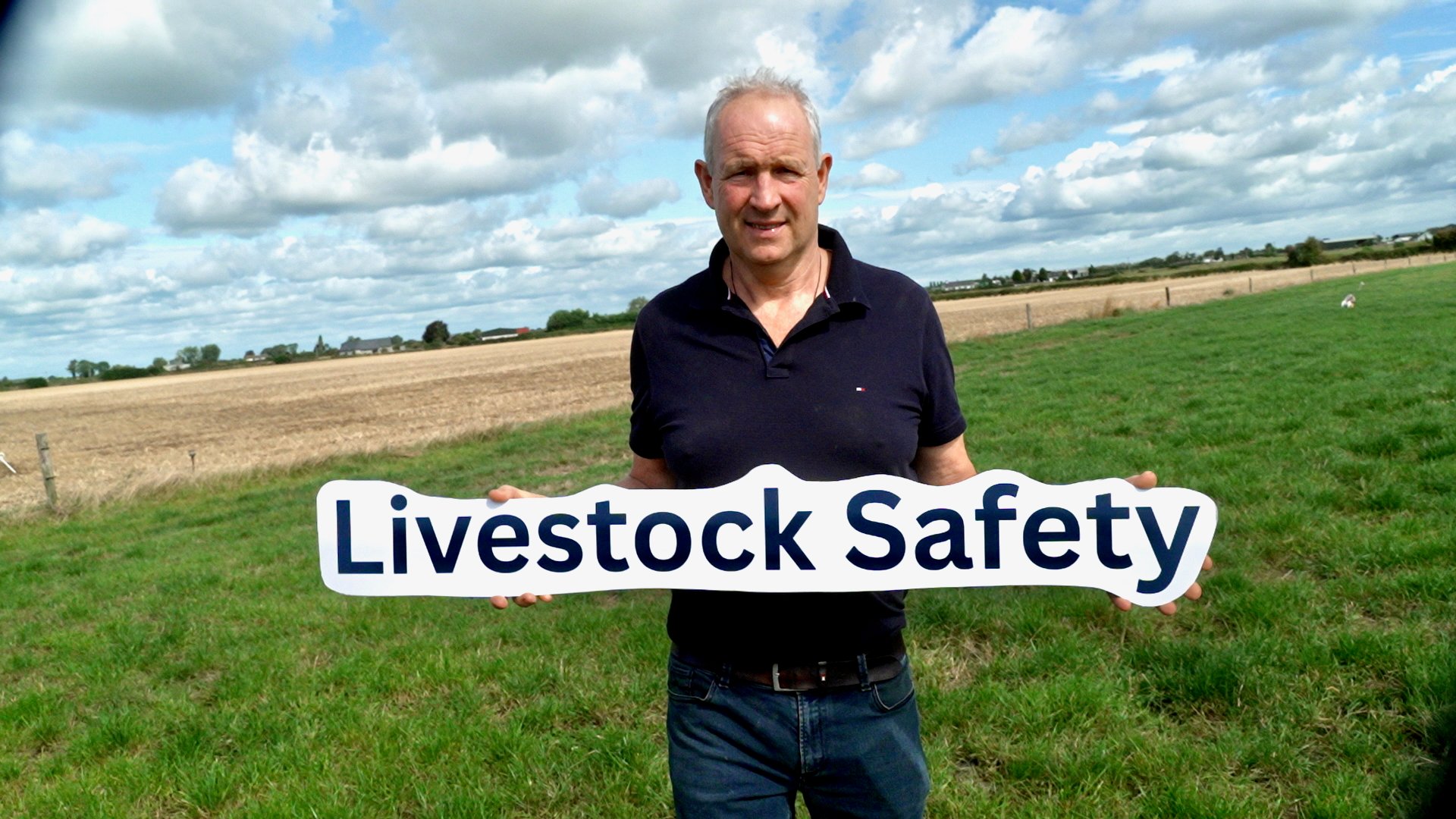Agri Aware Sowing Wellbeing in Every Field


'The day of saying "I’ll just get this job done myself" should be gone' - farmer
Agriland Media Group is delighted to collaborate with Agri Aware to bring you the ‘Sowing Wellbeing in Every Field Series’.
In this second instalment of the series, we look at safety around livestock.
Like many across Ireland, Shane is a hard-working farmer who has developed his enterprise over time, but his story is also a powerful reminder of how quickly things can change around livestock.
He recalled: “My father was a butcher, we used to kill our own beef and lamb back then.”
Over the decades, he built up the holding, adding sheds and a slatted beef finishing unit.
The Purcell family mostly buy continental bulls from the west of Ireland, sourcing directly from farmers.
Bulls usually arrive in the autumn and are sold the following summer, leaving the farm by October, Shane explained.
But as he learned one cold morning, even the best systems can’t remove every risk.
“It was the same as every morning,” Shane begins.
He was feeding cattle, checking troughs, and making sure all looked well.
After spotting a bull lying down, he walked through the gate to check on them, and once he saw he was okay, Shane turned to check the cleanliness of the water trough.
Moments later, without warning, he was struck to the ground.
“I didn’t see or hear anything coming. Next thing I remember, I was on the ground, my dog licking my face," Shane said.
"I tried to get up but couldn’t. The bulls were around 850-900 kilos. I’m only 90kg. You can imagine the whack.”
He believes one animal got spooked, setting off a chain reaction of seven or eight bulls surging toward him.
Shane is unsure as to how long he was unconscious.
“I realised I was in bother. It was getting hard to breathe," he said
"I crept out over the wall of the pen and lay in the feed passage until I got enough strength to move.”
Badly injured, Shane somehow made it back to the farmhouse.
His mother raised the alarm, his wife and neighbours came almost instantly, and an air ambulance arrived within 20 minutes.
The list of injuries was shocking: three broken vertebrae, three broken ribs, a broken hand, a dislocated shoulder, facial fractures, and serious head injuries.
“Looking back, I was lucky. If I’d fallen another way, I mightn’t be here to tell the story,” he said.
Shane believes his life was saved that cold morning thanks to two things: the hat that softened the blow when his head hit the ground; and his loyal dog Sam, who helped revive him after he lost consciousness.
Recovery was slow and his shoulder took the longest. After a year he was just about able to lift his arm overhead, but he came through.
Livestock safety
The experience has left him with a new outlook on livestock safety.
“You always think you have everything right," Shane said.
"But cattle are animals, and anything can frighten them. The same job you did yesterday mightn’t be the same today.”
Now, he makes it his policy to never work with cattle alone.
“If there’s dosing or vaccinations to be done, I wait until the lads are here. And if they’re rushing off to football, we leave it.
"You are better off calm and not under pressure”, he explained, because that is when he believes the accidents happen.
Shane also insists on always keeping a phone on him and maintaining clear escape routes when moving stock.
“Facilities are number one,” he stressed.
“Spend the money, it’ll save you in the long run. You’d pay more in hospital bills than you would on a few good gates.”
Practical changes have been made on the farm too.
The Purcells now move cattle in groups that stay together from pen-to-crush-to-lorry, avoiding the risk of pulling out individuals as that is when things get tricky.
Water troughs have also been repositioned so that they can be cleaned from outside the pens.
Shane is clear on his advice for anyone handling cattle:
- Get your facilities right – gates that hang properly, troughs you can reach safely;
- Never work alone – always have help, and do not rush;
- Keep your phone on you – it could be your lifeline;
- Plan an escape route – know how to get out if things turn;
- Do not keep dangerous cattle – move them on.
“Farming is a great way of life, but you can’t take chances,” he said.
“The day of saying ‘I’ll just get this job done myself’ should be gone. Anything can go wrong at any time.”
Shane’s experience is a sobering reminder that while livestock work is routine, and you may be used to the cattle, it is never without risk.
With calm handling, good facilities, and a willingness to slow down, tragedies can be avoided.
“I was one of the lucky ones,” Shane reflected.
“That morning could have ended very differently. If my story makes even one farmer stop and think, then it’s worth telling.”
Agri Aware is reminding farmers: "Your health matters, and we want to hear from you."


